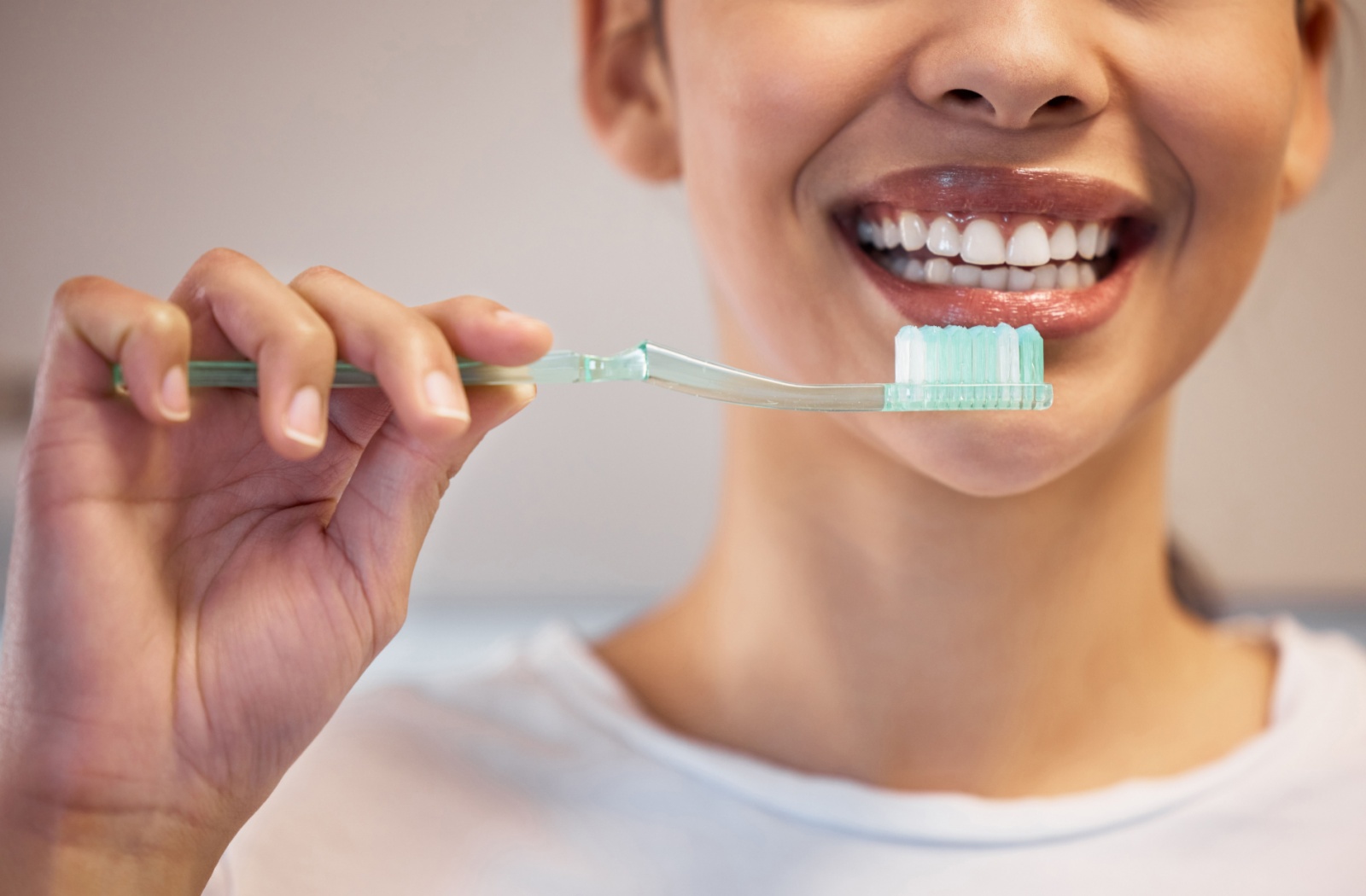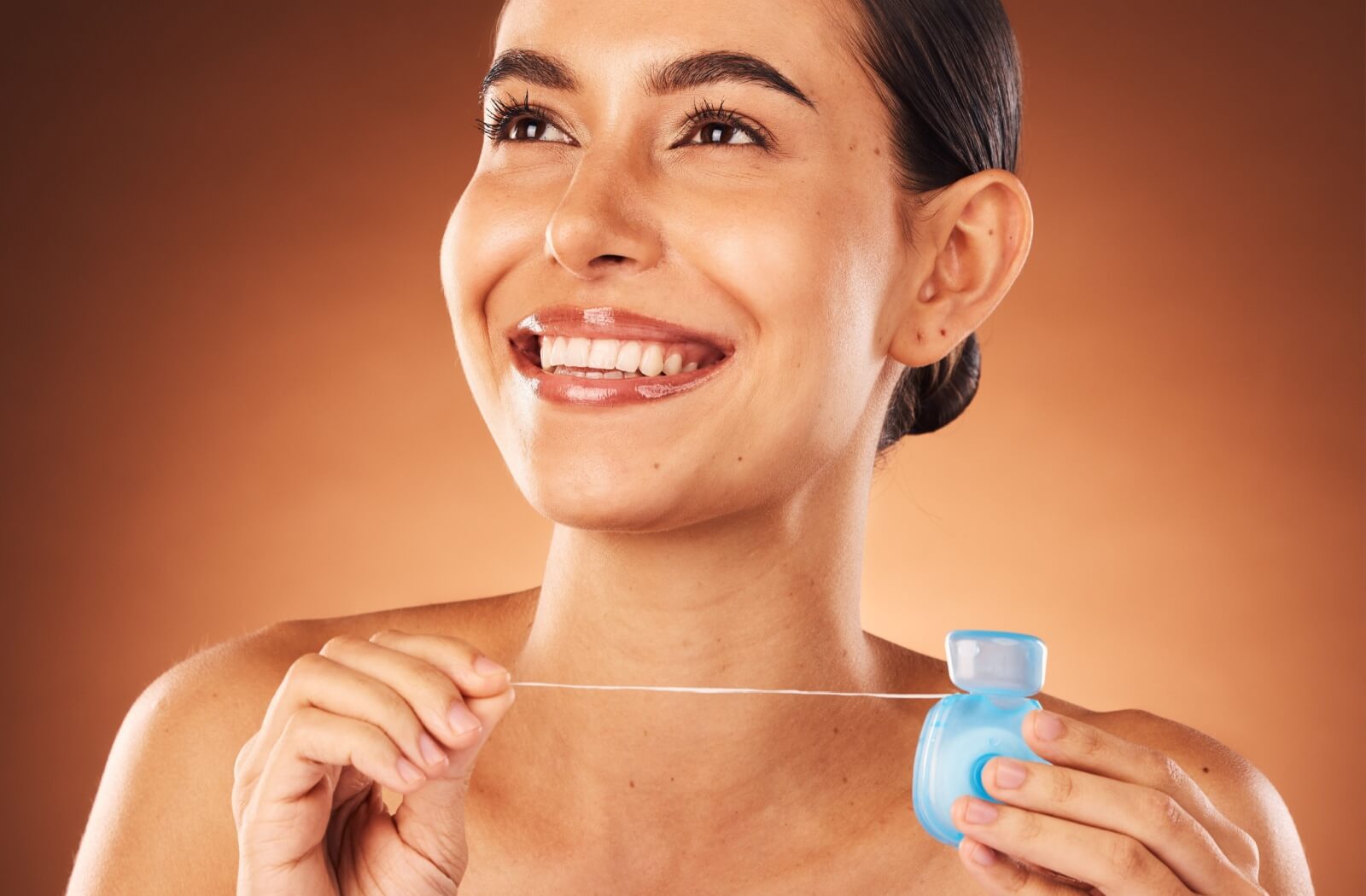Oral Health
Flossing
Should You Floss Before or After Brushing?
When it comes to oral hygiene, we all want to do the best for our teeth and gums. Amidst the flood of advice, one question frequently arises—should you floss before or after brushing? Contrary to what some people believe, dentists recommend that you floss before brushing for optimal cleaning.
Why Bother Brushing & Flossing?
Brushing and flossing are the foundation of good oral hygiene. Brushing helps remove bacteria and food particles from the surfaces of your teeth and gums. However, brushing alone may not reach all the nooks and crannies, leaving spaces where plaque and tartar can accumulate. That’s where flossing comes into play, ensuring those hard-to-reach areas between your teeth are clean and fresh.
Why Floss Before Brushing?
Many dental professionals advocate for flossing before brushing, and there are several reasons why. Flossing first helps dislodge food particles and plaque that can accumulate between the teeth, areas that a toothbrush may not effectively reach. By removing this debris, you create a better surface for your toothbrush to work on.
This step is crucial because it ensures that when you brush, your toothbrush can more effectively clean your teeth and gums. With less plaque and debris in the way, the fluoride in your toothpaste can reach more surfaces, providing better protection against cavities and gum disease. Moreover, flossing can stimulate the gums, promoting better oral health overall. By incorporating this practice into your daily routine, you can significantly enhance your dental hygiene and contribute to a healthier smile.

Be Consistent About Oral Hygiene
A consistent oral hygiene routine is your ticket to long-term dental health. Regular flossing is how to help prevent gum disease, tooth decay, and bad breath. Pair this with brushing twice a day using fluoride toothpaste and a soft-bristled toothbrush, and you’re on your way to achieving excellent oral health. Don’t forget that professional cleanings and regular dental checkups play a vital role in maintaining your oral hygiene.
Making Oral Care Fun for Kids
Teaching children the importance of oral hygiene from an early age sets the foundation for lifelong healthy habits. Here are some tips to make brushing and flossing enjoyable for kids:
- Incorporate Fun Elements: Use colorful toothbrushes, sing songs, or play educational games during their oral care routine.
- Lead by Example: Demonstrate good oral hygiene practices by brushing and flossing together as a family.
- Integrate into a Routine: Make brushing and flossing a natural part of their daily routine, such as after meals and before bedtime.
Preventing Gum Disease
Gum disease is a common concern, affecting nearly 70% of Canadians at some point in their lives. Left untreated, gum disease can lead to serious complications, including gum recession, tooth loss, and bone damage. Flossing helps remove plaque and harmful bacteria from the gums, reducing the risk of inflammation and gum disease. By being proactive about your oral care routine, you can protect your smile and overall health.
How to Choose the Right Floss
Choosing the right floss is an important step to maintaining clean teeth and gums. Nylon wax floss, made from durable nylon fibers coated in a thin layer of wax, is a popular choice. Its smooth glide makes it easy to maneuver between teeth, reducing the risk of shredding or fraying. Textured floss is more effective at grabbing particles than nylon floss, however. Consider trying different types of floss to find the one that works best for you.
The Benefits of Water Flossers
A water flosser, or oral irrigator, is an innovative tool that complements traditional flossing. Using a pulsating stream of water, a water flosser removes plaque, bacteria, and debris from between teeth and along the gum line. It’s especially effective for reaching areas that may be challenging with traditional floss. Many models even offer specialized tips for orthodontic or periodontal care.
While a water flosser enhances your oral hygiene routine, it shouldn’t replace traditional brushing or flossing. Instead, it serves as a powerful addition, promoting optimal gum health and cleanliness.
Be Consistent!
In the quest for a healthier smile, the choice between flossing before or after brushing should be based on what fits seamlessly into your routine. What’s most important is consistency and diligence in your oral hygiene practices. By maintaining a regular routine of brushing, flossing, and professional cleanings, you’ll be well on your way to preserving your dental health and enjoying a radiant smile.
If you have questions or wish to learn more about oral care, don’t hesitate to reach out to us at Centennial Smiles. We can offer personalized advice and insights to help you achieve the best results for your unique smile.



